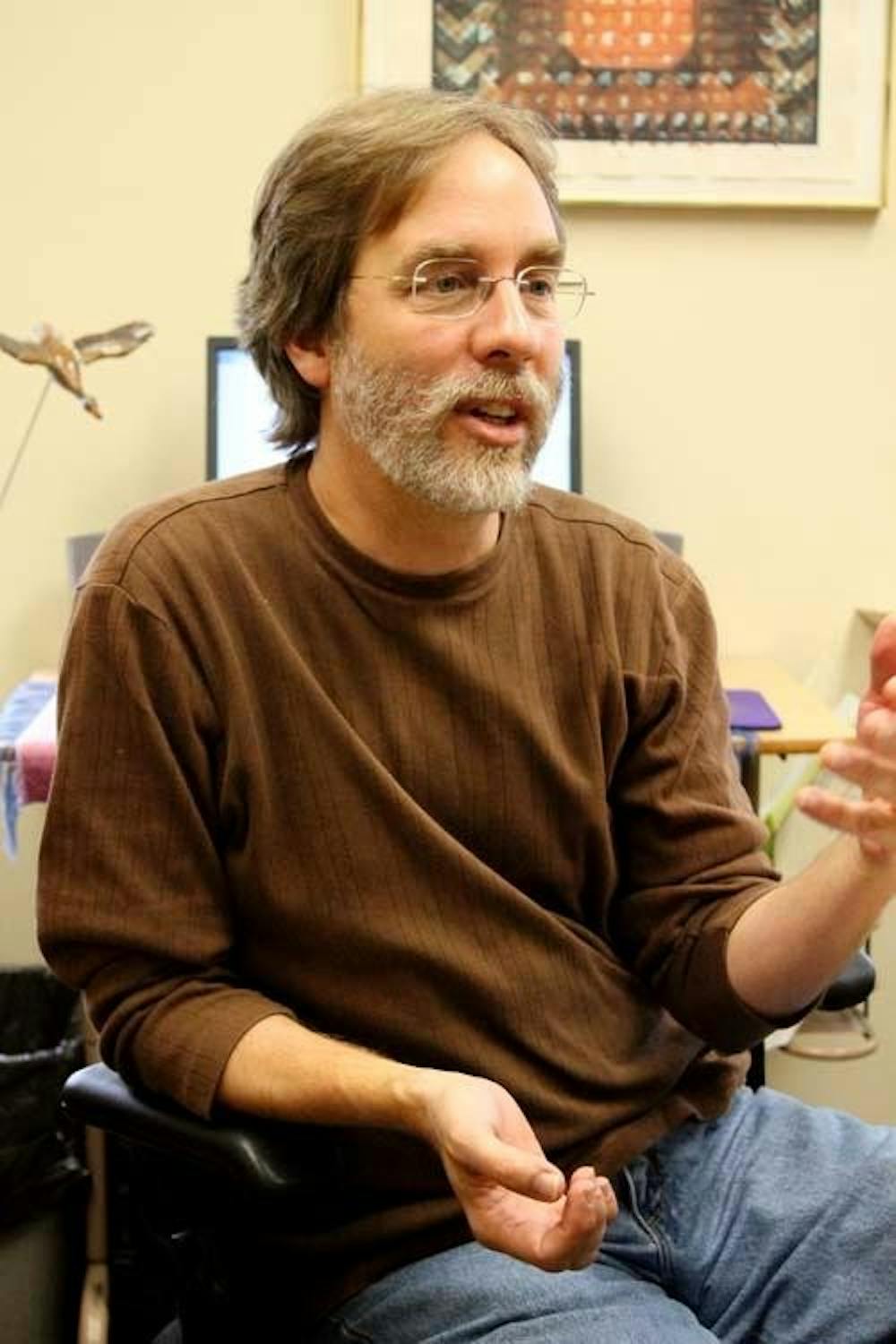The Communication Department shares their research on actual UP student and teacher communication
Prof. Jeff Kerssen-Griep discusses his research on how professors and students communicate. Kerseen-Griep was the first speaker of the Communication Department fall colloqium series. (Giovanna Solano | The Beacon)
By Rachelle Leduc, Staff Writer leduc13@up.edu
Q&A
Yesterday, Sept. 26, professor Jeff Kerssen-Griep presented his research on "Which teacher communication abilities matter most" as the first speaker of the Fall semester colloquium series.
Throughout the semester, the Communication Studies Department will demonstrate and display communication being done around campus. The school ultimately wants to start a bigger conversation about communications on campus.
Kerssen-Griep sat down with The Beacon to answer a few questions about his research,
Q: What did you research in your study?
A: "We were looking at mostly students perceptions. We wanted to find out what's your sense of what's happening in your actual classes. We weren't making up pretend scenarios. We were asking students about their actual teachers. We asked them a lot of questions they were qualified to answer for examples about their motivations or their experiences or their recollection of things they did.
So we're asking people things that are within their expertise, and also asking them what they noticed about their teachers' responses. We've been doing more work from the students perspective than we have from the teachers perspective so there are a couple of ways this research has to grow next."
Q: Why did you find it important to study this?
A: "This is my favorite thing. I've always thought that group communication is the hardest kind of communication to do well, because if you're doing public speaking you can think of it as 'I'm going to come, I'm going to persuade you, it doesn't matter how I'm going to do it, you're going to go do what I want and I don't have to see you anymore.' In interpersonal communication [it's more like] 'I'm going to develop a relationship with you, we're going to have nice interactions but we're not going to do anything together, and I don't have to worry about persuading about anything.' [In] group communication you have to do both, and teaching is so much group communication; that's really what its about, that's the hard part of teaching I think, maintaining your [students] willingness to come to class.
It's communication that people can learn and do, so that's what I got into studying. So my contribution was to take this notion of facework ( how an individual's identity is changed through communication) from the interpersonal communication literature and apply it to the instructional communication literature where it really hadn't been before."
Q: Who would this research be most beneficial to, teachers and professors or students?
A: "All the above. I would even say to the universities that house them, because really what we're studying here is supplying social science evidence that says 'here's why it matters that people feel involved in a conversation that is intentionally respectful and that you can make other choices as a teacher.' You've [teachers] got authority, you can do that if you want, you can always use a hammer, but that's a different kind of motivation and leads to different kind outcomes.
So if we can offer evidence that persuades people [that] this is an interpersonal skill you've got already, and [can] apply in lots of settings with people you care about, [you can] apply it in the classroom.
Most of our data is about what sorts outcomes result when there seems to be more of that rather than less of that."
Q: What did you find most important, and how did affect your teaching?
A: It has been so affirming to realize the data really kind of affirmed my intuition.
Q: What's next?
A: "The next question we have to learn about is...do you learn well from a jerk? Because I have. I have been in classes where I've thought 'I hate him and I can't wait to come back to class.' If we're right about this facework stuff, why should that work?
So there has to be some other filter going on in people's thinking about facework that has to do with their expectations. That's the next place we have to go.
Next place is to figure out so why do people learn from interpersonal jerks as well. How do those people get some of these same outcomes if they aren't either good at this or care enough to do it? The second thing we have to do is to look more at how teachers actually accomplish stuff. Because mostly we have been looking at whether or not students perceive it to be there, and the students could be wrong. We want to look at teachers who are really good at this, and figure out how do they actually pull it off and see if we can encode that for people.
We're looking for advice that is portable but not too behavioral, so teachers get to use their own best abilities. So I think what we need to do next is give people more guidance without being too prescriptive behaviorally."
Upcoming speakers in the Communication Studies Department Fall semester colloquium series
"How should I touch you? Teaching intimate touch strategies to nursing students."- Chad O'Lynn, PhD and Loretta Krautscheid M.A. - Wednesday, Oct. 31. 12-1 p.m. CST Capstone Night - Tuesday, Dec. 11. 6:30-8 p.m. Both talks will be in Buckely Center 163








